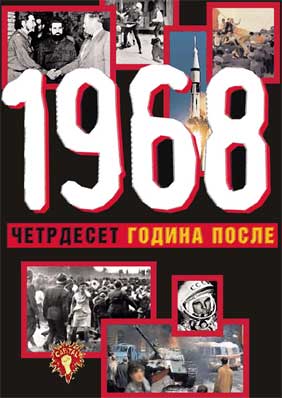Година 1968 – исходиште нове југословенске спољнополитичке оријентације
The Year 1968 – Point of Departure of the New Yugoslav Foreign Policy Orientation
Author(s): Ljubodrag D. Dimić
Subject(s): Diplomatic history, Political history, Post-War period (1950 - 1989), History of Communism
Published by: Institut za noviju istoriju Srbije
Summary/Abstract: In the world filled with disagreements and quarrels, Yugoslavia was, during the 60s, trying to find its place. Confronted with deep internal crisis its state and party leadership found itself on the important historical crossroad. Experience of the past decades obligated and at the same time, burdened party on power. Dilemmas about the further ways of developing the society were numerous. Growing crisis more and more pressured. Foreign position of Yugoslavia was stabile. Non-alignment politics and one of the leading positions of Yugoslavia in that movement gave the Josip Broz Tito possibility to run the world politics. It was in discrepancy with size, economic potentials and internal stability of the country. Elimination of the external fear indirectly influenced on the development of the internal relations, fights inside the party leadership, „relaxation” of the Yugoslav federation, opening the national question, independency of republics, new constitutional-legal sharpening of the country. Internal crisis was deep, in the same time state and party, ideological and organizational, political and economical, social and moral. Confronted with it, the most responsible Yugoslav politicians from the beginning of 60s noticed that crisis lasted longer that one decade, and that it turbulence in the basis, party on power, occupied state, disarrange institutions and society, threatened international stability of the country. Military intervention of the Warsaw pact in Czechoslovakia in august 1968 changed a lot
of things. Declaring a protest against military intervention in Czechoslovakia, Josip Broz Tito basically appealed on the defending of Yugoslavia. Defending the common principles which gained in foreign affairs and interests of socialisms in the world, Tito primary defended uniqueness and positions of his country. Tito was convicted that military intervention in Czechoslovakia directly proceeds from strive to restrain processes in „lager” countries, which Yugoslavia started with its example. Gradually started political „turn” of Yugoslavia towards Europe but in the same time to Moscow was indicated, with series of initiatives and declarations that a wish for better relations existed. In other words, Josip Broz do not won’t to wait changes in politics of the Soviet Union and Europe towards Yugoslavia, he tried to provoke it. He counted that Yugoslavia with its numerous advantages was needed on the East and on the West.
Précis definition of Yugoslav foreign position Tito based on the judgment that Europe became a region on which great powers cooperates, despite irreconcilable quarrels in the other parts of the world. That judgment in the same time demanded researching of its own state and national capacities, consolidation of long lasting goals and resolving all internal problems. Tito knew that internal situation in great level create foreign position of the country but he was not ready to accept fact that in Yugoslavia, in that moment, existed crisis and that it had „disturbing character”. Political situation in Yugoslavia he estimated as „good”. He considered that there was no reason for disturbance and internal conflicts. Social and strategic stability on the ”internal level” he judged as sufficient for condemning realistic foreign policy. All aspect showed that existing social discrepancies and confl icts were not passing occurrences but „long lasting components of the social system”. It was political oversight which would seriously threatened stability of the country in next months and years.
Visit of the American president Nixon showed that Yugoslavia hold important place on the scale of the foreign priorities of USA. It was certain sign for Tito that USA counts on him, Yugoslavia and non-alignment countries as important factors in attempts to transform the „era of confrontation” in „era of negotiation”. Realization of the visit in the moment of intensifying the conflicts in the Middle East and Vietnam spokes additionally. Nixon’s visit to Zagreb and words that „spirit of Croatia was never ruined and enslaved” were in the same time serious warning that political crisis under the burden of Croatian nationalism which threatened the unity of the country, might in every moment be used. To Tito it was clear that two options existed. European stability was the best guaranty for Yugoslav stability.
Crisis which captured Yugoslav federation in the beginning of 70s party leadership tried to solve on few different ways – with new constitutional reforms, strengthening the leaders social role of the CPY, fighting with nationalistic movement in Croatia, strangling the liberal-democratic tendencies in Serbia, „conserving” of the anchoring political conceptions. Structure of the crisis was predominantly political. Identifying the idea of state with the fate of party denied democratic future of the country. The process of economic disintegration left disastrous consequences. Tendencies of the disintegration in the country and party on power injured Yugoslavia on the foreign plan and damaged Tito’s image. Great internal problems absorbed all the important energy of the state and party leadership. It was the main reason of the Yugoslav „passivity” during the first months of the 1971 on the international plan. Tito’s position in the world politics was additionally undermined by undersized accurateness of non-alignment movement.
Book: 1968 - четрдесет година после
- Page Range: 339-375
- Page Count: 37
- Publication Year: 2008
- Language: Serbian
- Content File-PDF

